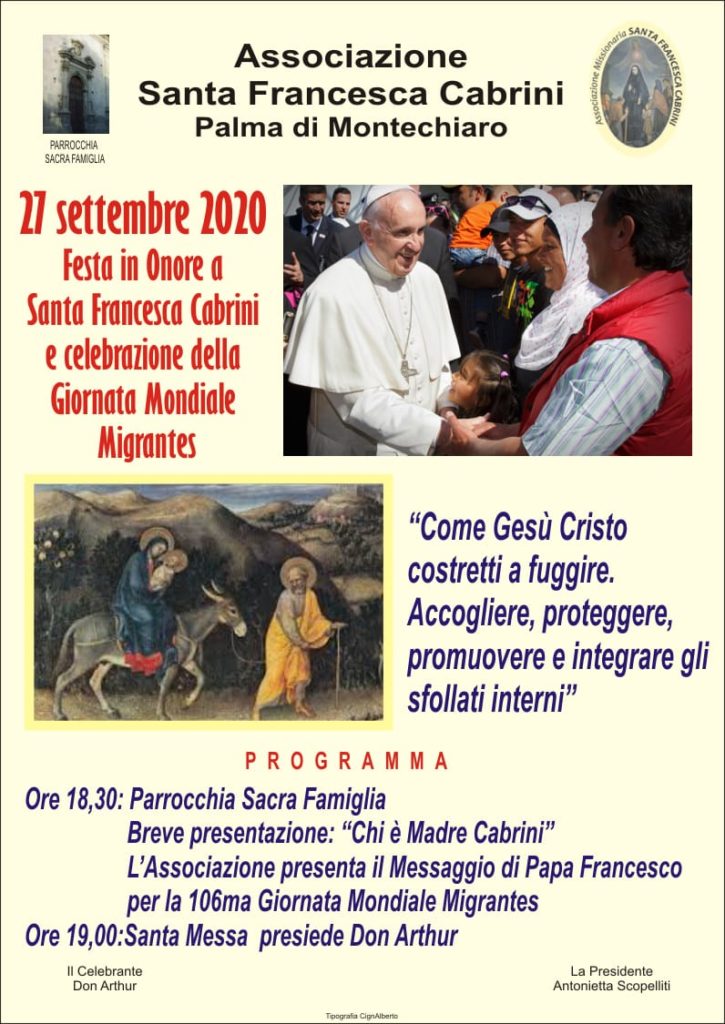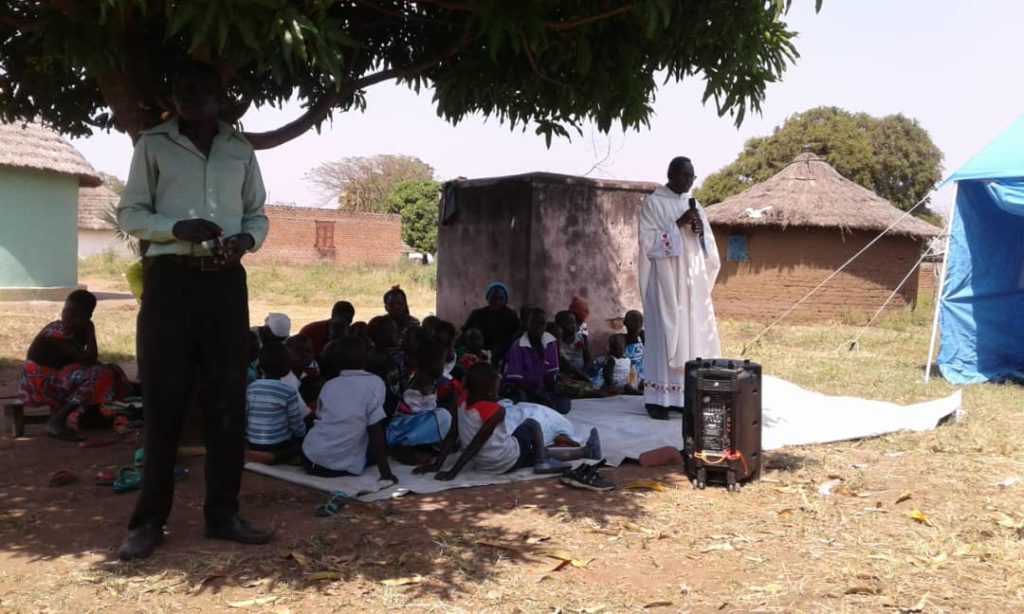After careful preparation offered by the Institute, including the presence and expertise of therapist, Sabina Fila, the time had finally come to be here in Uganda.
We arrived on April 23 2019 during the octave of Easter, among people who looked at us with a certain shyness and suspicion – and with a question. “Who are our guests?” We remembered that they are people who have experienced the trauma of war and therefore, were scared, suspicious and afraid.
In the first few days we stayed in Kampala, the capital city, to start the process for work permits to enable us to stay in Uganda. We went to the Jesuit Center that welcomes and assists refugees from several neighboring countries, and that also offers English language courses.
We visited the ARU (the Association of Religious Life) Secretariat, the Bishops Conference, and also made some contacts to meet people and organizations that work with refugees.
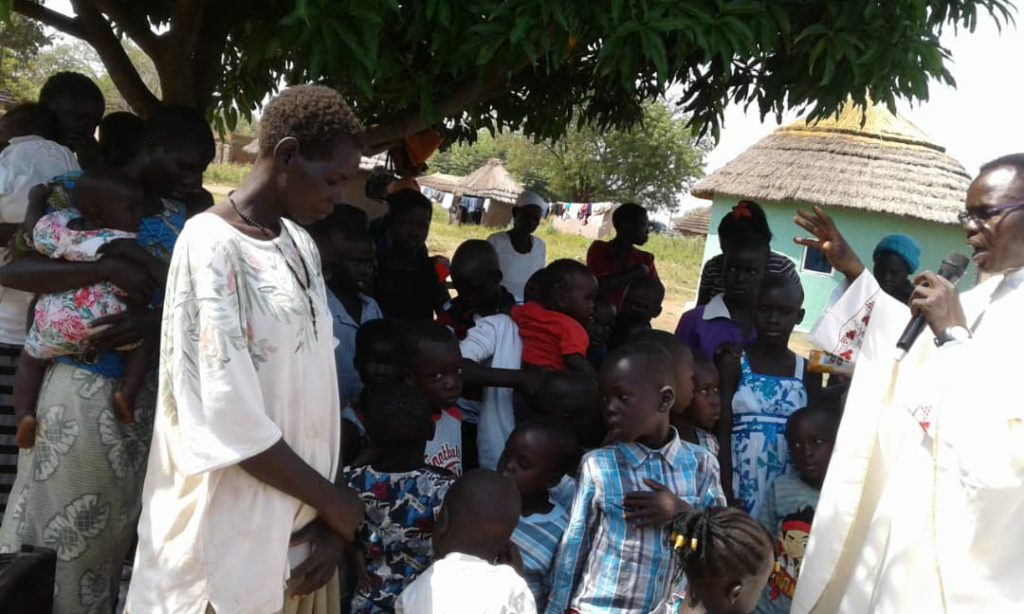
Then we headed towards our new home in Dzaipi, which was not yet finished. Thus, we spent two months among workers who calmly finished the final details. We had challenges with water, electricity, gas, without internet etc. … but thanks be to God, we were able to overcome them. Another challenge is the language. We are a community composed by five people from four different cultures and languages, living in the midst of a people where each tribe or group has its own language. Therefore, we really need to use translators, to have a lot of love and patience with ourselves and the people of this mission.
In May, we received a visit from Mons. Elizeo Ovure, who is the Episcopal Vicar for Refugees & Migrants in the Arua Diocese. We MSCs were looking forward to reaching out to the refugees and he told us: ‘Be calm, sisters, let us go slowly’. He spoke about CARITAS and the person in Liliam who would take us to the refugees. In these first two months, we visited and met with groups of people who already work with refugees. We had meetings with some of them, where they presented their work programs. We also visited the Prime Minister’s Secretary for Refugees. In each refugee settlement here, there is a large team of government officials, as the influx of refugees has provided employment for more Ugandans. The health sector only accepts Ugandan workers, while the schools in the settlements only have teachers from South Sudan.
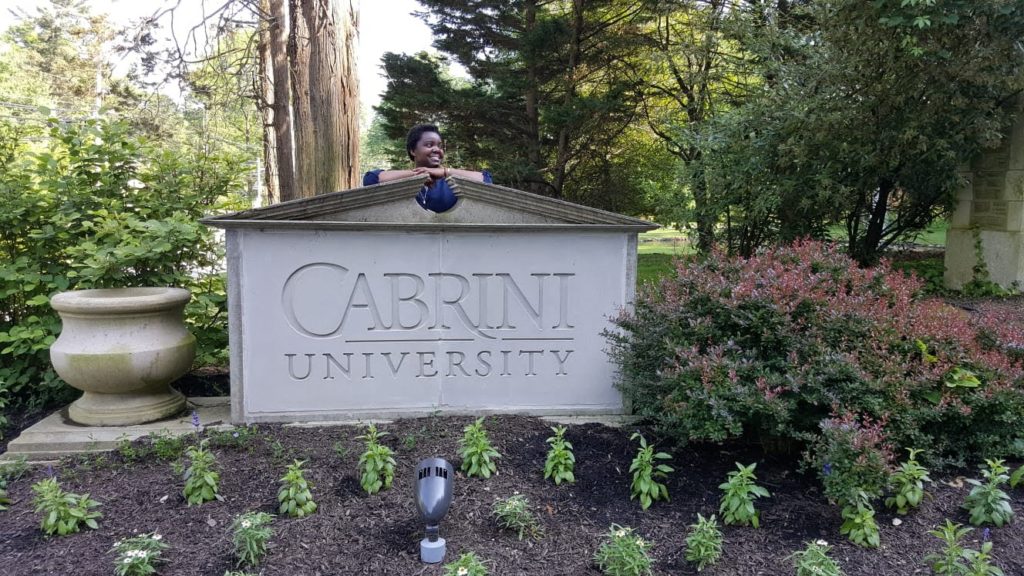
Also, during May, with the help of the Dzaipi Parish priests who are also refugees, we finally arrived in the settlements. We had prioritized four settlements: Pagrinya, Nyumanzi, Ayllo I and Ayllo II. We started visiting the schools, health centers, projects, the Professional Center & the home for children who lost their parents in the war etc. Each settlement has many communities and also other religious denominations.
We started by holding a meeting with each community, creating a space for conversation to listen to their needs, their greatest challenges and hopes. In general, everyone expected us (because we are foreigners) to bring money to build a church, water wells in some communities, medicine, food, support for the children’s school. We did not promise anything in terms of ‘money’ but a presence to create conditions of life with dignity together.
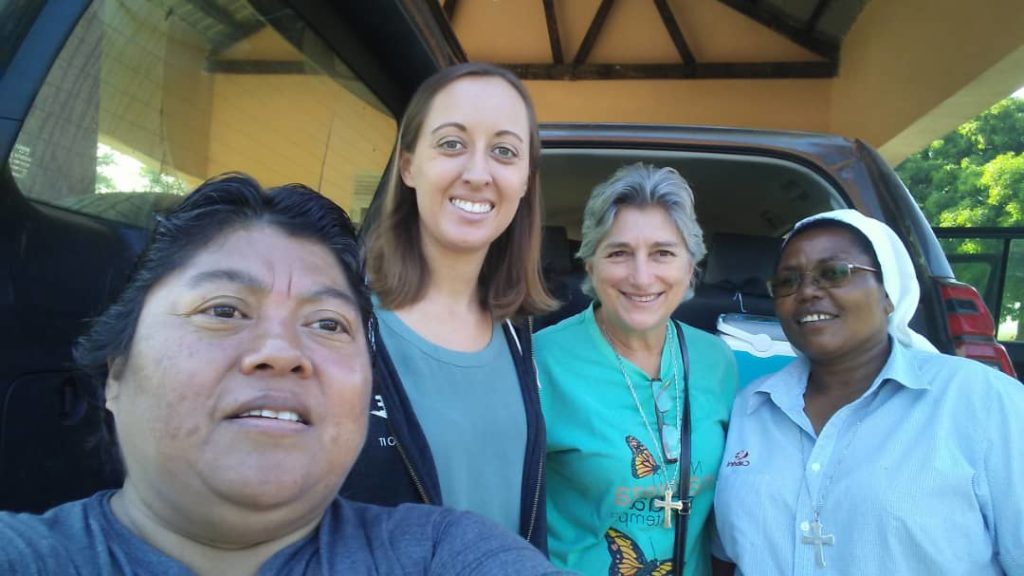
Knowing the leaders of the communities, especially the catechists who are a highly respected moral authority here, we set out to visit and prioritized the sick, the elderly and orphaned children. Entering these houses, we encountered situations of extreme poverty, of the sick, the blind, and elderly people living alone, of adolescents taking care of their orphaned brothers & sisters, of young people dying due to snake bites, malaria, typhoid and other illnesses, due to a lack of medicine, poor hygiene, lack of food – their basic needs are not being met. Hospitals and health centers are very limited and cannot cope with the needs of sick people.
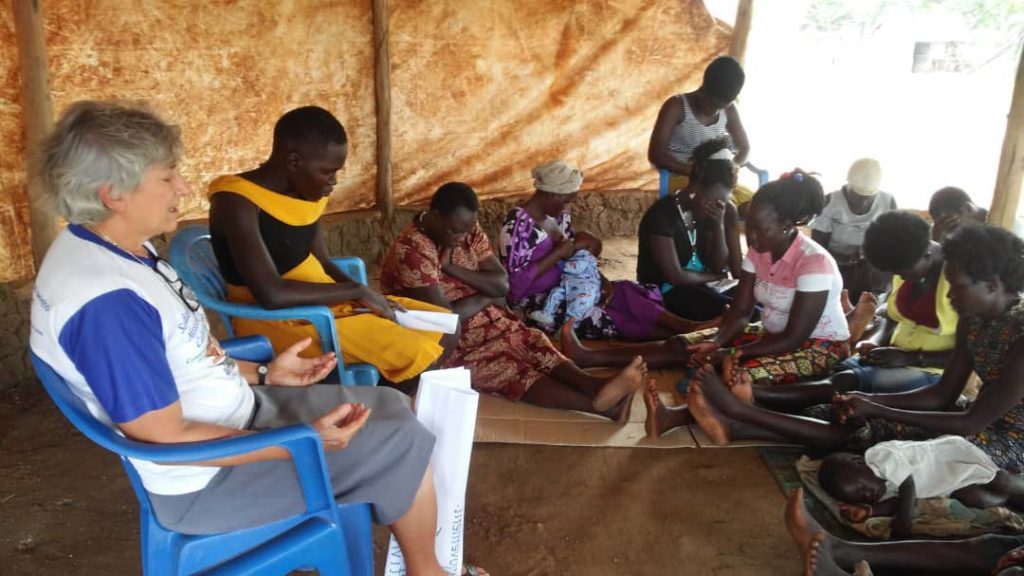
Another finding is the high number of children and adolescents (64% of the population are children). Each family has five, seven, nine or more children. Education is another great challenge. With so many children, the settlements should have many more schools. Currently, classrooms have 70 – 90 children, and some classes more than 100 students. In such a situation, the quality of teaching must suffer. Here, almost all schools are fee-paying and cost quite a lot.
I could go on writing many things about my observations of these suffering people, who carry in their bodies, minds and emotions, the harsh experience of years of war, family & property losses, family separation and yet, they still know how to smile, to pray (they are a people of great faith), dance, celebrate life and live a simple life.
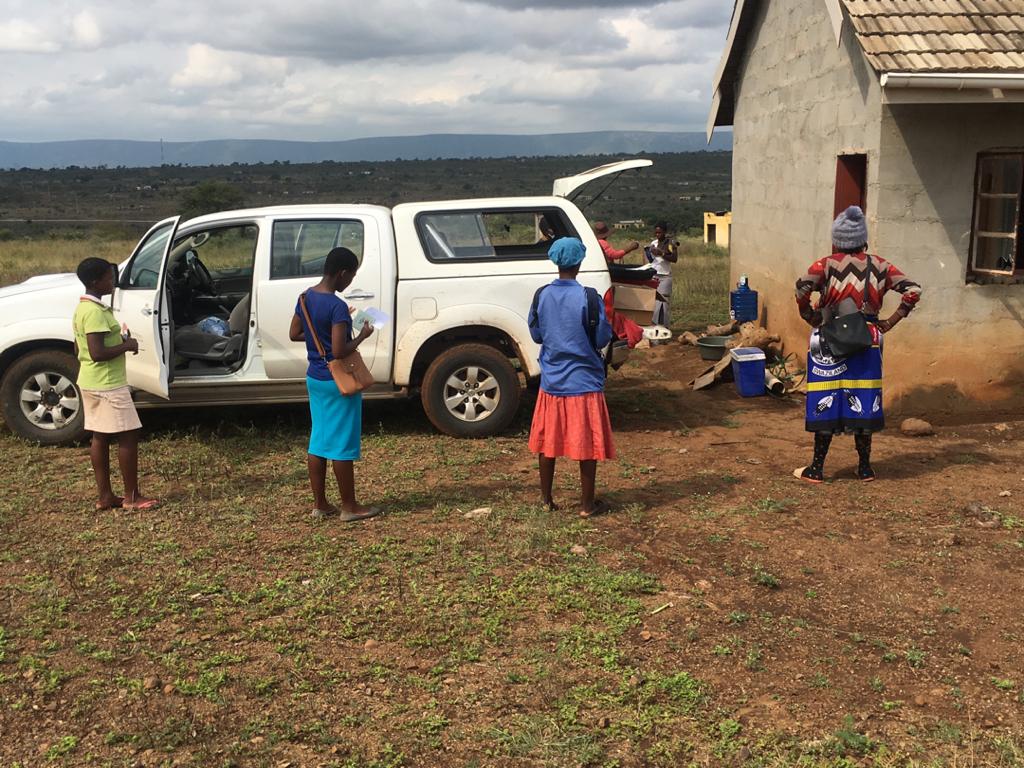
In these eight months, we have worked hard, and the first group of women in the St. Kizito community of Pagrinya is already starting to be born. We are weaving bonds and providing space to share their losses and pain. We have an agenda (a structure for each meeting) which includes welcoming, minutes of meditation, exercises (physical movements), sharing of the past week, followed by 40 minutes or an hour of manual work to help with providing food for their family. We imagine that in the future, these groups will also extend to other communities. These are small steps as we get to know this ground well, and we are discerning how we can better help these sisters and brothers of ours.
The experience of these months has made us look, evaluate, and focus, in this first semester, only on Pagrinya settlement. We will not abandon the other three settlements, but currently, our strength and time will focus on Pagrinya, which is the largest.
At this time, we feel supported and helped by the priests of the parish, accompanying us to the communities, presenting us at meetings, and translating in the various languages. Additionally, we thank our Bishop Odoko, Monsignor Elizeo, other Religious sisters & brothers, especially those who are working with refugees, plus Sabina Fila for her presence and valuable help. We thank the leaders of our Institute for their support and visits, for their confidence in us and for the mission, sending us into this portion of the Kingdom of God where life cries out.
Sr Albertina, MSC
